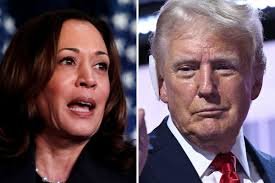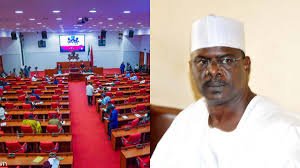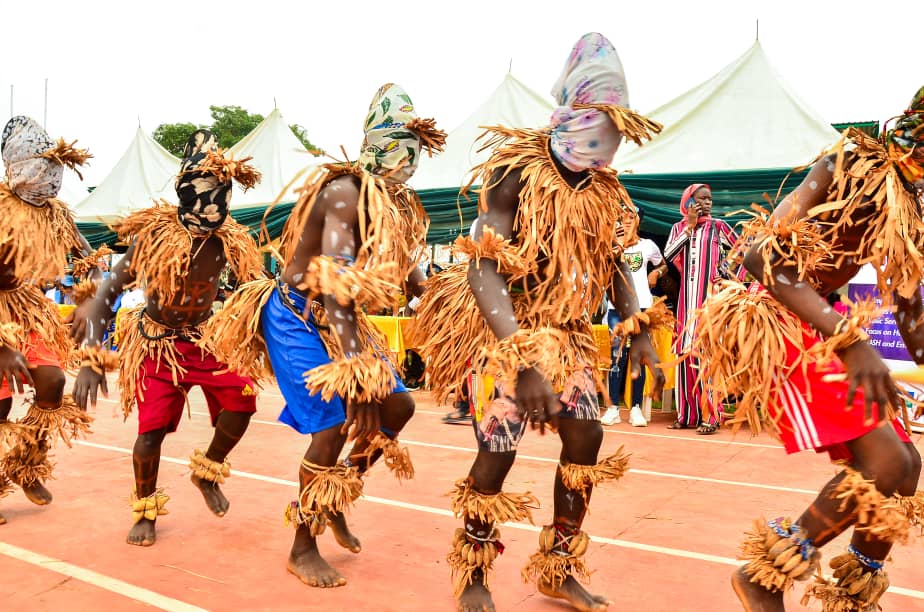By Armsfree Ajanaku
Although it is still over one month to the date given by the Independent National Electoral Commission (INEC) for the 2023 Presidential and National Assembly campaigns to begin, many of the political gladiators, especially those with their eyes on the Presidency, have already gotten off the blocks. As things stand, subtle campaigning is already underway in the name of consultations, town hall meetings, meet and greet events and much more. Going by the time table released by INEC, September 28, 2022 is the date for commencement of campaigns for the Presidential and National Assembly polls. For governorship and state assembly polls, the date stipulated in the INEC time table is October 8, 2022. This is in line with the provision of Section 94 (1) of the Electoral Act 2022, which states that for “the purpose of this Act, the period of campaigning in public by every political party shall commence 150 days before polling day and end 24 hours prior to that day.”
However, the political actors in their usual proclivity for intrigues and mischief are not folding their hands, while grudgingly adhering to these fine points of the law. They have been busy reaching out to would be voters. Most of them have also been engaging potential voters in conversations through tacit methods, which come just short of campaigning. As the respective campaign teams go about projecting their candidates, without openly telling the would-be voters to elect their preferred candidates, they are spinning certain narratives.
Keen observers of the political process have been paying close attention to these narratives because they are at the core of what the supporters believe their candidates stand for. In the process of spinning these different narratives also, the political actors across the various partisan divides are clashing. Observers have indicated that the clash in narratives is happening because many of the camps see a need to take the battle to the camp of the opponent. As such, a number of salvos have been fired by the various camps with the intention of de-marketing the opponent. In this war of attrition truth is appearing to be one of the major casualties.
Subsequently, the emerging pattern of the clash of political narratives points to the likelihood of a three horse race between the ruling All Progressives Congress (APC), the Labour Party (LP) and the opposition Peoples Democratic Party (PDP). It will be therefore instructive to look at the narratives of these three parties and their candidates in order to understand what direction they will be heading as the campaigns begin.
Bola Ahmed Tinubu, APC
Firstly, the ruling APC’s presidential candidate, Asiwaju Bola Ahmed Tinubu has always framed his bid for the Presidency in terms of the pursuit of his “lifelong” ambition to be the leader of the world’s most populous black nation. Nonetheless, beyond this aspect of his justification for running for the Presidency, the former Lagos State Governor has also talked about his capacity to lead, frequently making allusions to how his administration in eight years put in place an effective template for the governance of Lagos. The BAT camp is also quick to point out that Lagos is one of the few states in Nigeria, which have the capacity to stand on their own, even if there is no monthly allocation from the Federal Government.
With a monthly revenue base of N50 billion monthly, the Tinubu campaign is quick to claim credit for this, insisting their principal was the one who brought about the several innovations that unlocked the potentials of Lagos, thereby helping it to generate such massive amounts of internal revenue. Although Lagos was recently adjudged by the Economist Intelligence Unit as the second worst city to live in out of 172 cities across the world, the BAT campaign has been quick to ignore such lacerating interrogation of the candidate’s record. Interestingly, it would appear that the APC candidate will not only be taken to task on his own record. He would have to defend the record of the ruling party, which has come under intense scrutiny. Notwithstanding the fact that the BAT campaigners have been insisting that Tinubu should not be taken to task on the record of President Muhammadu Buhari, it is clear many would-be voters portray the APC candidate as an offshoot of the Buhari Presidency.
Little wonder, since he won the presidential primary in a landslide with 1271 votes, defeating 13 other aspirants in the process, Tinubu has tended to call for empathy with respect to the irreverent criticism of Buhari. This strategy is apparent in the position of the APC Presidential Campaign spokesman, and Minister of State for Labour, Barrister Festus Keyamo who recently expressed the view that some of the pressing challenges Nigeria is facing are not peculiar to it.
In a nutshell, the Tinubu campaign in spinning the narratives for the 2023 presidential election would have to tread the fine line between talking up its own ideas and intelligently defending the Buhari record. As challenging as it is for the ruling party candidate to move along these lines, the headaches of the BAT campaigners becomes much more compounded by the controversy generated by the choice of a Muslim-Muslim ticket. Reactions to that controversial decision have shown no signs of subsiding. All these point to the fact that the Jagaban’s spin doctors have their work cut out for them.
Peter Obi, LP
For Mr. Obi of the LP, the narrative battles in the build up to his 2023 presidential bid have been defined by the resonating message of moving Nigeria from consumption to production. The LP candidate’s blunt presentations about Nigeria’s dire economic straits have fired the imagination of many across the country. Soundbites from the Obi campaign project him as the candidate who will spend the nation’s resources frugally, and ruthlessly cut the waste in government. The Obi campaign’s ability to deftly commandeer data to make the case for their principal has riled the opposition camps.
The narrative of the Obi campaign that he is the man with the competence to bring Nigeria out of the woods in 2023 appears to have been bolstered by the emergence of Yusuf Datti Baba-Ahmed as the running mate. As such the mantra of the youthful supporters of the LP has been focused on portraying the ticket as being “Obi-dient and Yuseful.” The LP ticket therefore presents itself as one, which stands for the interests of long suffering young people of Nigeria. The campaign insists Nigeria has nothing to share anymore, and that the country urgently needs to explore its potentials to produce and export. These talking points have electrified the presidential field with millions of young people voicing their readiness to come all out for the former Anambra State helmsman come February 2023.
One of the big point of claims and counter claims in the narrative battles as it concerns Obi is the discussion about the alleged limited structure of the LP. While mainstream politicians have tended to dismiss Obi for lacking the required structure to win a presidential election, the LP candidate and his campaign team have been quick to use this argument to turn the tables on opponents. The LP and its candidate have been quick to mention unemployed youth, Nigerians living in poverty and other historically disempowered citizens as the structure, which would propel Obi to win the Presidency come 2023.
Notwithstanding the momentum being enjoyed by the Obi-Datti movement, it is faced with its own contradictions. Firstly, both Obi and Datti were formerly of the PDP. As such, they may have to be wary to going too hard on PDP, which would amount to unwittingly attacking their own previous record. If the political fight gets intense, the LP would have to properly think through its options in order not to come across as hypocritical. Similarly, the LP would have to temper its nice sounding rhetoric about its capacity to fix the mess that is Nigeria. The ruling APC said much more in 2015, but turned out to be stuck when it finally got the nod of Nigerians to take the presidency and fix the problems. It would appear the LP would have to learn the valuable lesson of not over-promising on the campaign, only to struggle to deliver, if it indeed gets the mandate of the Nigerian people.
Atiku Abubakar, PDP
As candidate of the PDP, former Vice President, Atiku Abubakar has narrated his quest for the Presidency as a project to unite Nigeria and revive its economy. This narrative apparently makes allusions to the deep-seated division, which have been accentuated in the polity since the APC came on the presidential saddle in 2015. With escalating ethnic tensions and separatists’ agitations convulsing the country, the Atiku pitch using the theme of uniting the country has led his campaign to portray him as the pan Nigerian candidate. The thesis of the Atiku campaign appears to be anchored on the notion that it is only when the country solves the problem of its perpetual instability that it can begin think of solving all the multitude of economic and governance challenges facing it.
On the credentials Atiku possesses to bring about national unity and harmony, one of his newly appointed campaign spokesmen, Senator Dino Melaye in a viral video circulating on social media talked about how the former Vice President married wives from diverse ethnicities in the country. The logic therefore appears to be that if the former VP could demonstrate unity in diversity at a microcosmic level, such as the family, how much more for the whole country. Also, the Atiku campaign has also been quick to tout what it describes as Atiku’s strong business acumen.
With diverse interests in manufacturing, logistics, and media, the campaign has been quick to point to this level of business acumen as one which is direly needed for a sluggish economy, which has not generated enough jobs. Team Atiku’s economic argument is also a jibe at the APC and Buhari for what economic experts have described as their atrocious handling of the economy. Despite being ebullient about what it has described as the vast capacity of their candidate to turn around the economy, the Atiku campaigners have come under fire over their candidate’s record in office.
One such line of attack has to do with the former VP’s record on privatisation of state owned businesses and assets between 1999 and 2003. As expected, Atiku’s traducers, rightly or otherwise allege that his shoddy handling of the privatisation process put some of Nigeria’s critical assets in the hands companies, which lacked the technical capacity to sustain them. Looking at the electricity situation for instance, the former VP’s critics say the process he superintended as Chair of the National Council of Privatisation paved the way for weak companies to take over a sector critical to Nigeria’s economic progress.























